|
Have you ever sat behind a family in church who don’t realize their child is tearing out hymnal pages silently? That was me when I was young. My brother would bring a whole container of Cheerios and still end up chewing the wooden pew, and my sister would constantly be passed back and forth to Mom and Dad until she either fell asleep or stopped chattering. Families who bring young children to church are establishing a foundation on which their faith can be encouraged throughout their lives. Interestingly enough, all three of us are now grown-up, moved away from home, and are regular attendees at Mass. Our commitment to faith and the Gospels has never ceased, but only grown into what it is today.
Soon we celebrate an important day in the liturgical year…the Fourth Sunday in Ordinary Time! Not what you were expecting me to say, right? As we listen to the Gospel at Mass each week, our hearts journey alongside Christ’s teachings and we parallel these teachings to our own day-to-day lives. We often forget that Jesus’ miracles and most famous parables occur during Ordinary Time! Surely, there is no coincidence that during these weeks of Ordinary Time, when Jesus is teaching his disciples, he is also teaching us. As we hear in this week’s Gospel of Mark, “The people were astonished at his teaching” (Mk 1:22). Just as those who heard Christ’s teaching firsthand, so shall we open our hearts and hear him, too! The Catechism teaches us that Sundays are the “principle day for the celebration of the Eucharist because it is the day of the Resurrection. (CCC 1193). Throughout the liturgical year we come together on Sundays to celebrate the paschal mystery, that is the death and Resurrection of Christ. Ordinary Time is an important part of the celebration of this paschal mystery. Ordinary Time can often be understood as time between the two holiday seasons. This period can be viewed as Christmas is over and Lent has not begun. There are two times during the Liturgical year. First is the time between Christmas and Lent, which begins at the Feast of the Baptism of Our Lord and lasts until Ash Wednesday. The second instance of Ordinary time begins the Monday following Pentecost and lasts until Advent. Ordinary is taken from the word, ordinal which literally means “counted numbers.” Many Catholics think of Ordinary Time as boring, usual, or “ordinary” Sundays instead of numerically arranged Sundays. Through the efforts of the New Evangelization, it is necessary to demonstrate to others the significance of weekly Mass, especially during Ordinary Time, to enhance our knowledge and message of the Gospels. Ordinary Time is a chance for Catholics to cultivate our understanding of Christ’s mission of love, and try our very best to be more like Him every day. So this Sunday, on the Fourth Sunday of Ordinary Time, focus on the message of the Gospel and the relevance of the Word in your life. Coming to church on a Sunday that is not for Advent, Christmas, Lent or Easter is not easy task for some people or families. If you see a family with young children in church this weekend, say a short prayer for those parents. It is not easy to take small children to Mass on a non-school-day, so a short prayer or an understanding smile might make it all worth their while. With your better understanding of the liturgical year, you too can let others know that Ordinary Time is not the boring-bunch-of-green Sundays, but a chance to grow closer to God and your neighbor. Now, if they ask you about the time between Christmas and Easter or Easter and Christmas you can respond with, “There is nothing ordinary about it!” Krissy Kirby is a teacher for the Archdiocese of Washington, D.C.
0 Comments
“Saint Thomas Aquinas, pray for us.” This simple invocation was the conclusion to my family’s Morning Prayer ritual. Every morning, for as long as I can remember, my family would pray together an Our Father, Hail Mary, Glory Be, and the St. Michael’s Prayer. We would conclude with the invocations of Saint Anthony (for a safe trip to school) and Saint Thomas Aquinas (for help with our studies). Today the day before the feast day of Saint Thomas, patron saint of students, and during Catholic Schools Week; I wanted to share my experience of education.
I attended public schools from first grade until I graduated from high school. I was not the only religious student in my grade (or even the only Catholic) but nonetheless I was labeled as the “token Catholic.” This label was at times a point of pride for me and at others a burden I wish I could evade. While it never hindered me from making friends, it still set me apart. I would take up defense of the Church’s often unpopular stance on social issues in class discussions. In some rare cases I even found that my thoughts on certain subjects were brushed off as being my opinion only because of my faith, and any evidence I supplied in support of that stance was ignored. While I received a well-rounded education, the school community was so concerned with being tolerant of all things that it became intolerant of ideas it perceived as being intolerant. After high school, I attended a Catholic college. This was my first real experience of having faith integrated into my formal education. There were numerous differences, but perhaps the most notable was the community. In every classroom, there were Catholic students whose beliefs varied widely, as well as students of other faiths or no faith at all. Regardless of who you were or what you believed, you were expected to support your opinion with reason. It was this environment that fostered a community of intellectual discussion and debate (which rarely turned into conflict). Every idea was heard, which allowed me to hone my own beliefs while also growing in faith. This community was truly welcoming and challenging to all—even when that meant a difference of opinions. Education should be a constant exchange of ideas. This exchange is not always smooth and simple, and that can in fact be a good thing. Saint Thomas’s two greatest works, Summa Theologica and Summa Contra Gentiles, incorporate the work of the Greek philosopher Aristotle (which, at the time that Saint Thomas lived and wrote, was just shy of heresy). He also conversed with philosophers of other faiths, most notably Islam. Despite this pushing of boundaries—or perhaps because of them—Saint Thomas is recognized today as one of the founders of modern philosophy. In his writings he addresses arguments and opposition to his theories head-on regardless of whom they came from. This boldness in spirit is what made him both an incredible student and teacher. It is also why, over eight hundred years later students—myself certainly included—ask for his intercession with their studies. As Catholics, it is our duty to build up communities where we can encounter both those who share our faith and those who do not. We can see this lived out in the challenging and formative words of our Holy Father. May we always seek to be students and teachers of the faith. Saint Thomas Aquinas, pray for us. Patrick Burke is a staff member at The Catholic University of America in Washington, D.C. “Deeds done well.” Note the emphasis that St. Vincent Pallotti places on how things are done. Too often there are many deeds that are not done well. They are done in a half-hearted, almost mechanical way. This is a “maintenance” mentality, as noted by the 2012 Synod on the New Evangelization. A missionary mode of operating, as emphasized by the Synod and by Pope Francis in Evangelii Gaudium, was at the core of the actions of St. Vincent Pallotti. Today is Pallotti’s feast day. As founder of the Union of Catholic Apostolate, an association of lay people, consecrated persons, and clergy, a part of which is the Society of the Catholic Apostolate (Pallottine Fathers and Brothers), he understood the need for all Christians to be people of action, apostles of Christ.
Today in Washington, D.C., thousands and thousands of people are taking to the streets in a show of action for life. One of the things that characterizes this effort is the joy that those who participate show in witness to life. Sometimes people of action, including Catholics, do not show joy in their actions. Joyful action will draw others, invite others, unite them, and send them forth to collaborate for the good of the Church and for the world. As we celebrate today the feast of the Patron of the Catholic Apostolate Center, St. Vincent Pallotti, I invite you to reflect on the the words of St. John Paul II and to do many deeds to make them a reality: “Continue to multiply your efforts so that what was prophetically announced by Vincent Pallotti, and the Second Vatican Council authoritatively confirmed, may become a happy reality, that all Christians are authentic apostles of Christ in the Church and in the world” (Homily of June 22, 1986). St. Vincent Pallotti, pray for us! May the Charity of Christ urge us on! Fr. Frank Donio S.A.C. is the Director of the Catholic Apostolate Center Today, the largest pro-life movement in the world will occur as thousands march the National Mall in Washington, DC, peacefully and passionately for the sake and sanctity of human life. Every year, the March for Life occurs on the anniversary of the historic Roe v Wade decision that made abortion legal in all 50 states. Despite the sorrow that fills the memory of this day, we have been called, as a community of life, to stand with zeal (word choice) for everyone’s right to life, not just this day, but every day of our lives.
I have never participated in the March for Life before, but I am very excited to finally take part in some of the activities that are occurring this week in our nation’s capital. From hosting eager pilgrims coming from Texas to march, to pro-life talks and dinners, and the National Prayer Vigil for Life, it has been an inspiring week so far. The pro-life community is strong and vibrant and it is a joy to be a part of that spirit. However, as I’ve been reflecting on the meaning and beauty of this week, I am realizing the vital call that is bestowed upon us to witness the beauty of life every day of our lives. During this week and beyond, we must take the time to see the value in every life and how we can share that with others. I want the world to know that the beauty of life is all around us: the young, the old, the rich, the poor, and those in-between. It is in those risking their own life for the sake of others. The beauty of life is all around the world in different races, cultures, and experiences. The beauty of life is in the day to day interactions of our community, at home, work, and school. The beauty of life is in experiencing nature. The beauty of life is in sharing our own lives with others. Most vividly, as Catholics we know that the beauty of life exists in the Church, as Jesus Christ who teaches us how to love perfectly: “No one has greater love than this, to lay down one’s life for one’s friends” (John 15:13). To love perfectly is truly selfless. Those committed to a culture of life live as selfless witnesses, caring for the sanctity of each human soul through love. In our culture where instant pleasure and satisfaction are the façade for human happiness, we must teach others that there is authentic joy in protecting and standing for those who may not have a voice of their own. So many have come before us and instructed us in Christ's example, in the way of life. Blessed Mother Teresa, who devoted herself to the Cross by serving Christ in the slums of India said, “Any country that accepts abortion is the poorest of the poor” and that, “Human rights are not a privilege conferred by government. They are every human being’s entitlement by virtue of his humanity. "Not only as Americans, but as faithful citizens of the kingdom of God, we are called to protect the preciousness of every life created by God. These thoughts are my prayers, especially today, as we reflect on the Right to Life, particularly that America and our world will come to embrace a culture of life for all peoples, and I hope that you will live these prayers with me wherever you are marching. Whether you are in our nation’s capital today, at home, or at a march in spirit, know that your witness matters and is essential to stamping out a culture of death and living a culture of life. In order to bring life to the world, we must live in love. Let us ask God to bless this week that He may touch the hearts of many who need to hear his words of love and mercy, and that together we can increase the culture of life. Alyce Anderson is a teacher in Washington D.C. This week (January 18-25) is the annual Week of Prayer for Christian Unity. We are invited to pray for the unity of the Christian Family. Celebrated for more than 100 years, unity is more than just an ideal, for the Christian it is an obligation to be carried out in prayer and in shared commitment to building the kingdom of God.
The roots of praying for unity are fixed in Jesus’ prayer, near the time of his death, “… so that they may all be one, as you, Father, are in me and I in you, that they also may be in us, that the world may believe that you sent me” (John 17:21). The Catholic Church’s participation in ecumenical endeavors took new shape in the Second Vatican’s Council’s commitment to build stronger ties across Christian communities. Building on the work of the Council, St. John Paul II called the church to make unity an exercise of spiritual ecumenism, noting that the disunity of Christians weakens the credibility of the Gospel. In an address to the church in Oceania he reflected “In the work of ecumenism, it is essential that Catholics be more knowledgeable about the Church’s doctrine, her tradition and history, so that in understanding their faith more deeply they will be better able to engage in ecumenical dialogue and cooperation. There is a need too for ‘spiritual ecumenism’, by which is meant an ecumenism of prayer and conversion of heart. Ecumenical prayer will lead to a sharing of life and service where Christians do as much together as is possible at this time. ‘Spiritual ecumenism’ can also lead to doctrinal dialogue or its consolidation where it already exists” (Ecclesia in Oceania, 23). This reflection of St. John Paul echoes in the theme for this year’s celebration which is “Give me a drink.” Taken from John’s account of Jesus’ encounter with the Samaritan woman at the well (John 4:1-42), it emphasizes the importance of encountering one another in dialogue and celebrating that all Christians drink from the common well of the life-giving waters of Jesus’ life, death and resurrection. In our encounter with Christians, in our dialogue, in our shared ministry of charity we learn the richness of one another’s tradition and we more easily see ourselves through the eyes of Jesus; who we are and who we can become. In the Decree on Ecumenism, written at the Second Vatican Council, the unity that can be found in Christ magnifies the invitation of this year’s celebration to drink of the water Our Lord has to offer. Before the whole world let all Christians confess their faith in the triune God, one and three in the incarnate Son of God, our Redeemer and Lord. United in their efforts, and with mutual respect, let them bear witness to our common hope which does not play us false. In these days when cooperation in social matters is so widespread, all men without exception are called to work together, with much greater reason all those who believe in God, but most of all, all Christians in that they bear the name of Christ. Cooperation among Christians vividly expresses the relationship which in fact already unites them, and it sets in clearer relief the features of Christ the Servant….All believers in Christ can, through this cooperation, be led to acquire a better knowledge and appreciation of one another, and so pave the way to Christian unity. Decree on Ecumenism, 12 Susan Timoney is the Assistant Secretary for Pastoral Ministry and Social Concerns for the Archdiocese of Washington and teaches spirituality for Saint Joseph’s College Online. She is also an adviser to the Catholic Apostolate Center. If you would like to know more about Christian Unity, please see our resource page! If someone were drowning, whether you knew how to swim or not, would you save them?
This is one of the sayings that Irena Sendlerowa’s father told her to remember and use as a model for her life. As a young Catholic social worker living in Nazi-occupied Poland during World War II, “Irena Sendler” made this question her life’s testament by saving Jewish children and orphans from the Warsaw Ghetto. January 27 is designated by the U.N. as International Holocaust Remembrance Day. This day of remembrance is appropriate for National Sanctity of Life Month. We may first think of respecting life in terms of the unborn, but being pro-life means honoring life in all stages. The horror of the Holocaust violated a respect for life. Many Catholics during this period of time understood the threat anti-Semitism brought to humanity. It’s not surprising many Catholics aided in protecting Jews and other targets of the Nazi Party. Irena Sendler was not a commonly known hero of the Holocaust until nearly a decade ago when four high school girls from rural Kansas created a 1999 National History Day (History Fair) performance focusing on the heroine. “We saw a 1994 U.S. News & World Report that was five years old [at the time we read it] with a clipping entitled, ‘Other Schindlers,’ and Irena Sendler was listed as saving at least 2,500 children,” said Megan Stewart-Felt, one of the four students who created Life in a Jar: The Irena Sendler Project. “ ‘Irena Sendler’ received one hit on Google in 1999,” said Felt. “Today I type in her name and have more than 767,000 hits.” Sendler’s work in saving Jews didn’t start with her efforts in saving children in the Warsaw Ghetto. As a young university student, Sendler made false documents for Jewish friends and others in the Warsaw area from 1939 to 1942 before she joined the underground Zegota, a Polish underground group to assist Jews. “Life in a Jar” describes perfectly the actions Sendler used to save Jewish children in the Warsaw Ghetto. Sendler, along with 10 others under her direction, implemented various tactics of getting children past Nazi guards. Several of these tactics included Sendler posing as a nurse taking “sick” or “dead” children out of the ghetto, smuggling a five-month-old baby in a carpenter’s box and using a barking dog to conceal the crying children, hindering Nazi guards from thoroughly examining the cargo vehicle. Sendler then adopted the children into homes of Polish families or hid them in Catholic convents, orphanages, and parish rectories. Priests and monks provided some Jewish children and adults with false baptismal certificates to pose as Catholics. AmericanCatholic.org quotes Szymon Datner, a Jewish historian, as saying about Catholic nuns, “No other sector was so ready to help those persecuted by the Germans. This attitude, unanimous and general, deserves recognition and respect.” To ensure the children would one day discover their true identity, Sendler made lists of the children’s real names and family information and concealed them in jars she buried in her garden. Nazi’s did capture Sendler. She was beaten severely and even scheduled for execution, but the Polish underground bribed a guard to release her and she entered into hiding. Sendler passed away at the age of 98 on May 12, 2008. Just one year before, Sendler was nominated for the Nobel Peace Prize in Oslo, Norway for her courage and valor in saving Jewish children. Additionally, Yad Vashem recognized Sendler in 1965 as Righteous Among the Nations. During National Sanctity of Life Month and International Holocaust Remembrance Day, it’s important to reflect and gain inspiration from everyday heroes, such as Irena Sendler, whose actions saved many lives, often at great risk to their own. Dana Edwards is a recent graduate of the University of Florida. She currently resides in Tallahassee, Florida where she works as a Digital Strategist, and volunteers as a lector and with communication outreach at her local parish, Good Shepherd Catholic Church. The call to holiness and the mission presented to the Church from Jesus Christ is certainly a challenging one. The fact that God created us with the ability to freely choose not only between right and wrong but between varied truths allows the members of Christ’s body, the Church, to live out the freedom given by God by our birth and baptism. The Catechism defines freedom as “the power, rooted in reason and will, to act or not to act, to do this or that, and so to perform deliberate actions on one's own responsibility ... Human freedom is a force for growth and maturity in truth and goodness; it attains its perfection when directed toward God, our beatitude” (1731). The ‘mission,’ so to speak, of Catholics in this day and age is to live the Gospel message and to promote a New Evangelization.
This does not mean that everyone is called to any particular vocation. However, everyone is called to a vocation. It is up to the individual, because of their freedom, to choose and discern where they are being called by God and for what purpose. Thomas Merton, in his book New Seeds of Contemplation, eloquently puts it: Our vocation is not simply to be, but to work together with God in the creation of our own life, our own identity, our own destiny. We are free beings and sons of God. This means to say that we should not passively exist, but actively participate in His creative freedom, in our own lives, and in the lives of others, by choosing the truth. To put it better, we are even called to share with God the work of creating the truth of our identity. Concrete personal reflection has never come easy for me, and there is a reason that people tend to hide their emotions. Reflecting on the meaning of vocation and what God is calling me to do conjures up memories of high school retreats of discovering where God is found in daily life. While structured experiences of faith exploration and formation are important in shaping the broad spectrum of faith, I have learned that is not all of what my faith encompasses. At the very first meeting with my spiritual director, he asked, “Who is Alex?” I began to spew answers such as student, friend, brother, and the like. What I wanted to avoid was the internal reflection on the self because I didn’t want to have to address the underlying feelings regarding vocation and personal identity. If we are indeed called to shape our own identity, then we very often have a choice. This could be a choice between choosing the truth over a falsehood or even between particular vocations. In discernment, it is my task to look forward, to look to the future. If I dwell on the things of the past, I will never adequately be able to say that I have done what God is calling me to do, whatever it may be. It is the Christian’s responsibility, my responsibility, to discern this vocation, whatever it may be, under the guidance of the Holy Spirit. If we must seek the Creator “spontaneously,” as the Vatican II document Gaudium et Spes puts it, on their own accord and out of impulse, then it becomes clear that the mission of the baptized Christian is to seek God always and in all things. The Italian priest Saint Vincent Pallotti, patron of the Catholic Apostolate Center, wrote, “Seek God and you will find God. Seek God in all things, and you will find God in all things. Seek God always and you will always find God.” I have often found consolation in this prayer of Saint Vincent. It serves as a reminder to attune my heart and mind to God, in all things and at all times. Out of this freedom of choice and seeking comes a responsibility to act out of instinct and to lead others closer to Jesus Christ by first seeking the very God who created us. Alex R. Boucher is a collaborator with the Catholic Apostolate Center. Follow Alex on Twitter at @AlexBoucher. To learn more about vocations, please see our Vocational Discernment Resource Page! Editor's Note: This post was originally published on January 15, 2012 This past summer, I wrote a blog post on the importance of family. Having just returned from a two week Christmas visit home, I’m again reminded of the importance of love in our lives, especially the love of family. I live in Washington D.C., far away from the majority of my extended family. Most of my 40+ cousins live back in Wisconsin and I now only see them a couple of times each year. As we all grow up, we have become more spread out and family holidays often have significant numbers missing. This year, however, almost everyone made it home for some or all of the many traditional Christmas celebrations. We decorated my grandparents’ house for Christmas, had the chaotic frenzy of opening Christmas presents on Christmas Day, tried to find enough tables and chairs in my grandparents’ basement for Christmas dinner, and raced through the “Round Robin” dinner where we travel from house to house for different courses. I was able to connect with cousins I hadn’t seen since last Christmas, meet the fiancés, boyfriends, girlfriends and new babies who are becoming a part of the ever-growing family.
We see a lot of discussions these days on the “true meaning” of Christmas. We are reminded to keep Christ in Christmas and we can often get lost in the frenzy of the season. What struck me, however, was that celebrating the joy of Christ’s birth was magnified by the people who surrounded me: my family. Christmas is a time where we celebrate our Savior becoming human and coming to us on earth. We do this in many ways; we give presents, have special meals, and unique traditions specific to our families. Being with those we love makes tangible the love of Christ that we celebrate at Christmas. Today’s first reading from the first letter of John says this: Beloved, if God so loved us, we also must love one another. No one has ever seen God. Yet, if we love one another, God remains in us, and his love is brought to perfection in us. As this Christmas season draws to a close, I challenge you to take a moment to reflect on your journey this Advent and Christmas. I hope you were able to spend time with loved ones, be they family or friends. How can you carry this love into this New Year? For as today’s reading reminds us, it is through loving one another that God remains in us. Rebecca Ruesch is the Blog Editor for the Catholic Apostolate Center. To celebrate the Catholic Apostolate Center passing 50,000 "likes" on Facebook, Communications and Social Media Intern Andrew Buonopane created a list of 50 Ways to Enjoy your Faith. This is the first post in a five-part series where we'll share the whole list. Check back on the first Tuesday of the month for another installment! #50 - Go to Confession The Sacrament of Confession is one that many Catholics do not celebrate regularly. Haven’t been in a while? Check your parish website and see when Confession is offered and give it a try again! Need a refresher on the ritual? Check out the Catholic Apostolate Center’s Lenten Resource Page for year-round resources on this important sacrament. #49- Remember to Laugh Laughing is not only emotionally beneficial, but also has health benefits as well! Take the time to find humor where you can! #48 - Learn to appreciate Silence In our busy lives, silence is often hard to come by. When you do have a quiet moment, take a second to appreciate it! #47 - Devotion to St. Therese of Lisieux, whose "little way" taught that holiness can be sought in ordinary, everyday life. Take some time to learn more about this incredible saint, whose feast day is celebrated on October 1st. She can teach us how to find holiness in our daily lives! #46 - Become more active in your Parish Next Sunday, check out your Church bulletin to see what is going on in your parish. See if there’s something you’d like to be more involved in! #45 - Serve the Poor Find a local meal program in your city and learn more about volunteering there. There are many programs and services that need time, talent, and treasure and offer many ways to serve those less fortunate. #44 - View and Reflect on Sacred Art Find an art museum or view a museum’s online collection to see many important works of art that depict sacred scenes. Or check out local art in parishes in your diocese! Many churches contain beautiful works of art such as stained glass windows. #43 - Own a Catechism …or view the new USCCB online Catechism here! The catechism is a great place to turn with questions about your faith or as a resource to learn more about what we as Catholics believe. #42 - Take a pilgrimage Pilgrimages can be to places near or far. In your own diocese, visit a parish or church you never have been before! Or research places such as the St. Jude Shrine, the Basilica of the National Shrine of the Immaculate Conception, or other places of pilgrimage farther away! #41- Devotion to St. Jude St. Jude is a wonderful Saint to pray to when you don’t know where else to turn. He’s the patron saint of hopeless causes and many people find peace in praying to him. #40 - Find a Bible Study See if your parish has a bible study and get involved! Studying sacred scripture is an important way to deepen your faith.
Andrew Buonopane is the Communications & Social Media Intern for the Catholic Apostolate Center Today we celebrate the Solemnity of the Blessed Virgin Mary, Mother of God. As I thought about the many lessons we can learn from our Blessed Mother, I found myself particularly drawn to wondering what it means to be a woman of faith. I’m sure there are many others who have pondered this same idea. Sometimes, I think about how the 21st century seems to illuminate women through a lens of conformity, threatening our truest femininity with negative connotation and making it seem “okay” to expect less of ourselves and of others. Many young women are faced with the struggles of understanding themselves according to how others perceive them, never knowing how to love themselves for who they really are.
Women are faced with the struggles of figuring out what it means to be a woman. We are told in different ways all around us that we are not smart enough or too intimidating, that we are not thin enough or too fat, to flaunt ourselves is to respect ourselves, in order to “get a man” we need to do x, y, and z. I offer a different perspective: womanhood is beautiful and blessed thing that proves we are the crown of creation by God the Father. My role as a Catholic woman is to support and love those around me with unfailing resilience and without ceasing. In the Catholic Church, there is one woman who rose above all difficulties and strife because she said, “Yes.” Mary the Mother of God is a perfect model of holiness and willful obedience to God, and a shining example to womanhood. When betrothed to a man she loved, she faced persecution and rejection from those around her. She knew others would judge her and they would criticize her, but she held true to her “Yes” and bore the Son of God. In our lives, what do we do when others look at us with disgust or with judgments? Can we not choose the higher road and be the person God wants us to be, regardless of what others may think of us? Mary certainly did. It is hard to swim opposite the current at times. Standing up for our virtue is something that most women find difficult or have never heard of before. As a woman of faith, I know that my responsibility to God and to myself is to love Him and love myself. God knows my most intimate thoughts and feelings and he will never leave me. When I’m feeling alone, disappointed, discouraged, scared, or disrespected there will always be one who will stand by me until the end, and that one is Jesus. What does it mean to be a woman of faith? It means to love above all else, understand that you are a precious creation, and that you are loved dearly by God himself. Krissy Kirby is a teacher for the Archdiocese of Washington. |
Details
Archives
July 2024
Categories
All
|
About |
Media |
© COPYRIGHT 2024 | ALL RIGHTS RESERVED



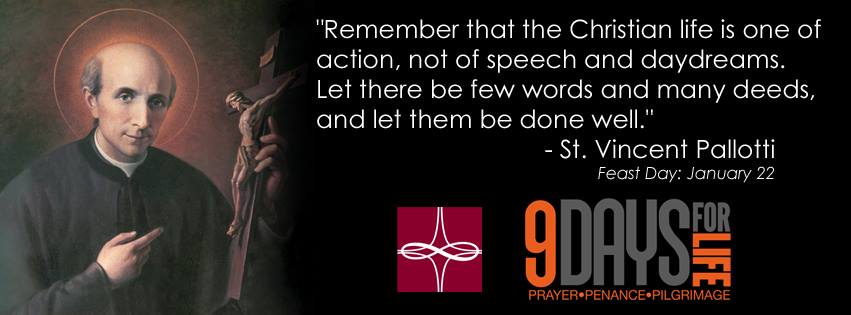
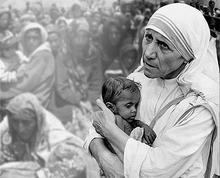
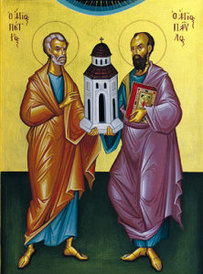
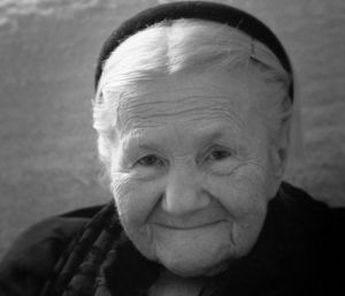
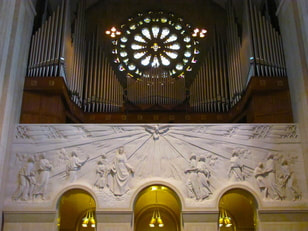

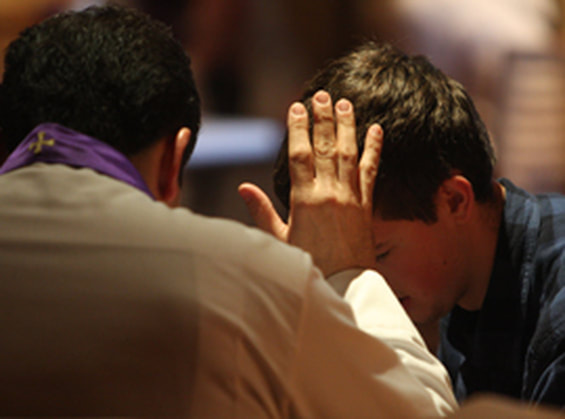


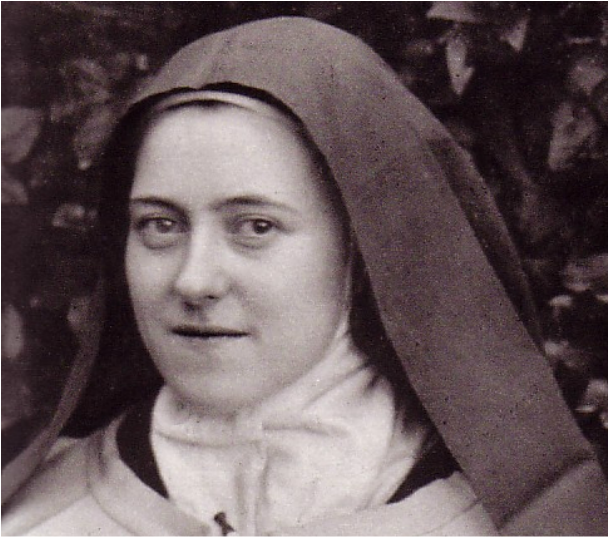
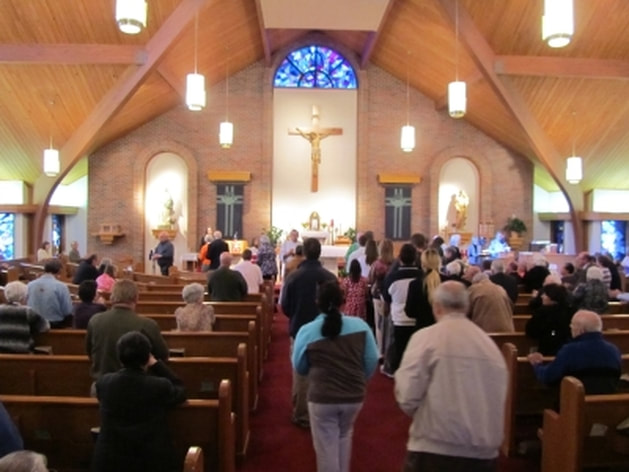
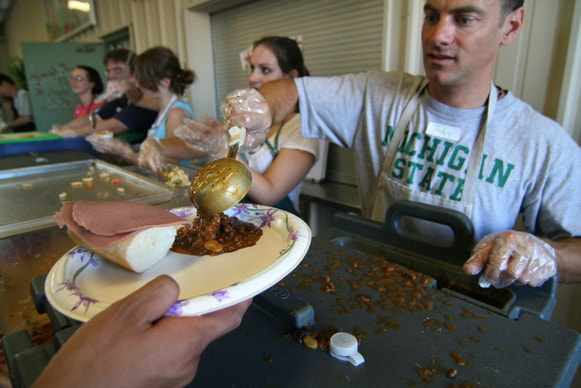
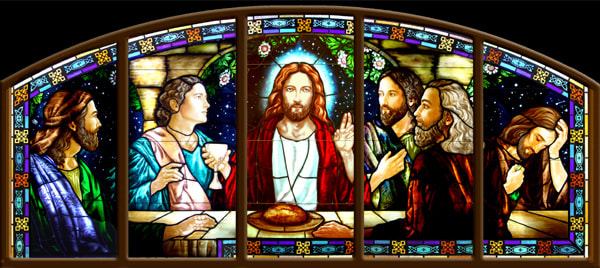
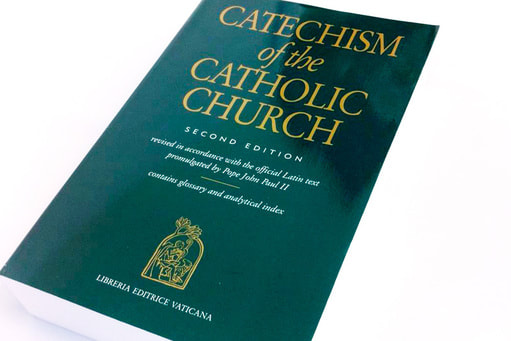
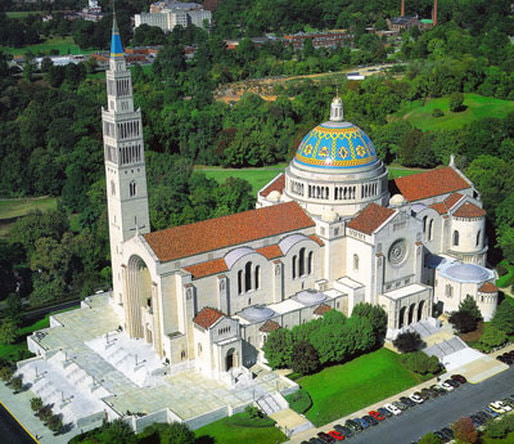
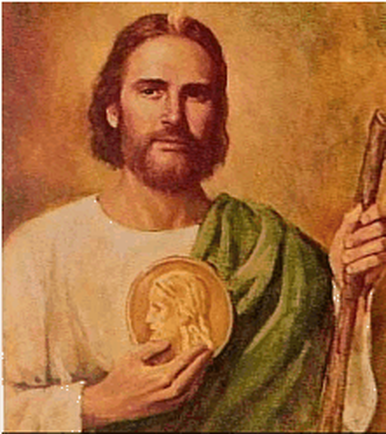
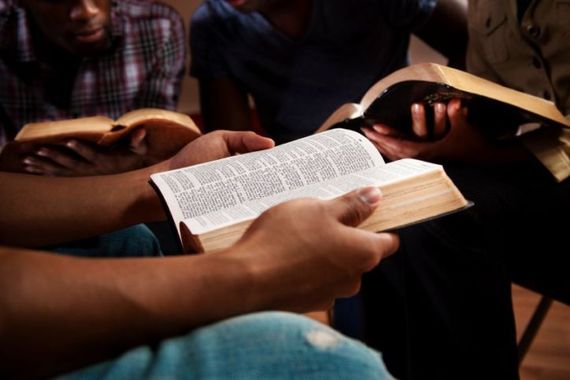
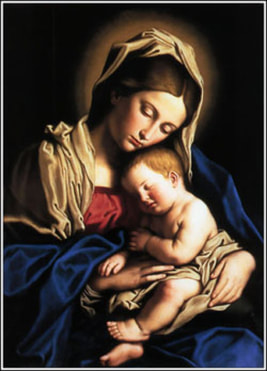
 RSS Feed
RSS Feed